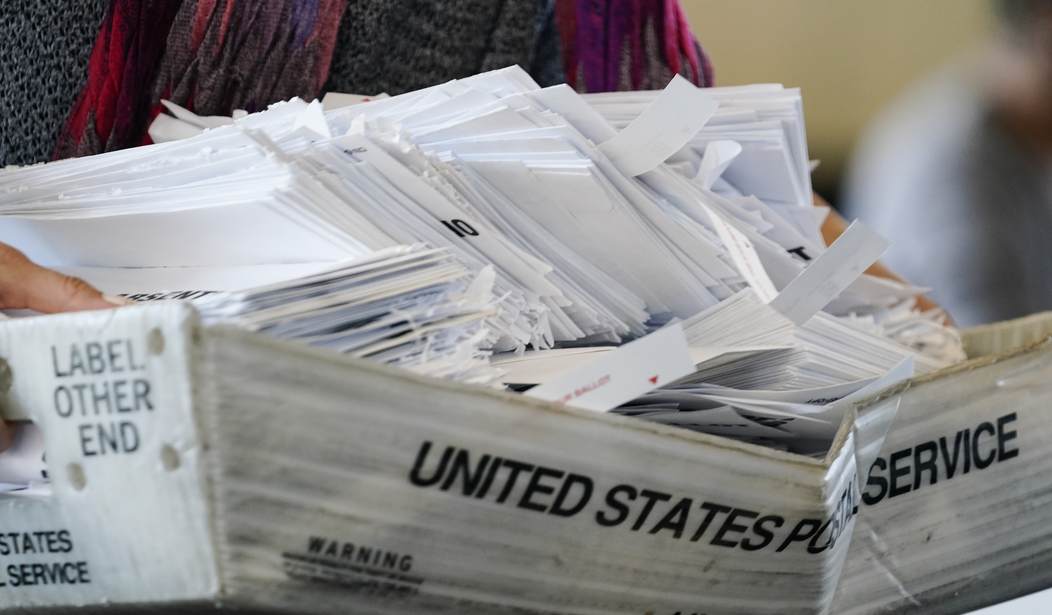My immediate response whenever I see another of these headlines about someone being convicted of voter fraud is to remember all of the times we have been assured that this never happens. But in the case of Pamela Moses, the founder of the Memphis, Tennessee Black Lives Matter chapter, there seem to at least potentially be some questions about her recent conviction and sentencing for illegally registering to vote. Last week, Moses was sentenced to six years in prison for registering to vote while she was on probation for a previous felony conviction and was ineligible to vote. The judge in the case accused her of “deceiving the probation department.” But Moses claims that she was led to believe that she was eligible. To put it mildly, the case is rather complicated. (NY Post)
The founder of the Black Lives Matter chapter in Memphis has been sentenced to prison for six years for illegally registering to vote in Tennessee, prosecutors said.
Pamela Moses, the 44-year-old activist, was ordered to spend six years and one day behind bars Monday for registering to vote despite felony convictions in 2015 that made her ineligible to do so, Shelby County District Attorney General. Amy Weirich said.
In handing down the sentence, Judge Michael Ward accused her of deceiving the probation department to obtain the right to vote.
Pamela Moses hasn’t exactly maintained a squeaky-clean record in her dealings with the law in the past. In 2015, Moses pleaded guilty to felony charges of tampering with evidence and forgery. She was also nailed on misdemeanor charges of perjury, stalking, and theft, none of which appear to be in dispute. (We might also wonder why someone with that sort of record would be selected to lead the local BLM chapter, but that’s a question for another day.)
Under the terms of her plea deal, she avoided jail time but was put on seven years of probation. The felony conviction for tampering with evidence made her permanently ineligible to vote in Tennessee. But in 2019, with three years of probation left, Moses went to register to vote. She insists that she had been told that her voting rights had been restored. She claims that she simply followed the instructions given to her by the clerk at the election commission and asked the parole board for documentation showing that her probation had ended.
There are two parts to the claims being made by Moses in defense of her actions. The first is that she was “unaware” that she was still ineligible to vote. That one is a non-starter because, as the old saying goes, ignorance of the law is no excuse.
But her other contention is that she was misled by both the parole board and the election commission. Some reporters who have looked deeper into this story suggest that she might not be entirely wrong. First, even though she was convicted of a disqualifying crime, the court never sent election officials in Memphis the documents they needed to remove her from the voter rolls, so her name stayed on the list as an eligible voter.
Then, Moses didn’t believe that her sentence had been calculated correctly even after a judge confirmed that she was still on probation. She went to the local parole office and asked them to settle the matter. A parole officer there agreed and filled out and signed a certificate confirming her probation had ended. She took the certificate with her when she went to register.
I’m still not sure what the judge meant by saying Moses “tricked the probation department.” Whose responsibility is it to determine the length of her probation? Hers or the courts and the probation department? Even if she was trying to intentionally fool someone, the probation officer should have been responsible for getting that right and not giving her a certificate saying otherwise.
But on the other side of the coin, the length of Moses’ probation shouldn’t have mattered to begin with. The evidence tampering conviction made her ineligible to vote permanently. Did nobody else realize that? If it’s true that the courts never informed her of her ineligibility, then she may have technically broken the law when she went down to register, but it seems as if the courts could have been far more lenient in sentencing her for what may have been a legitimate misunderstanding rather than an attempt to game the system so she could illegally cast a vote.
The ruling is being appealed, so this may not be the end of the story. We’ll check back in after she has another day in court.









Join the conversation as a VIP Member